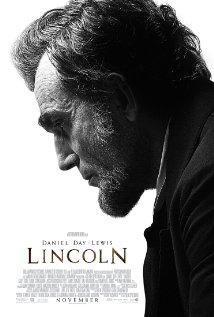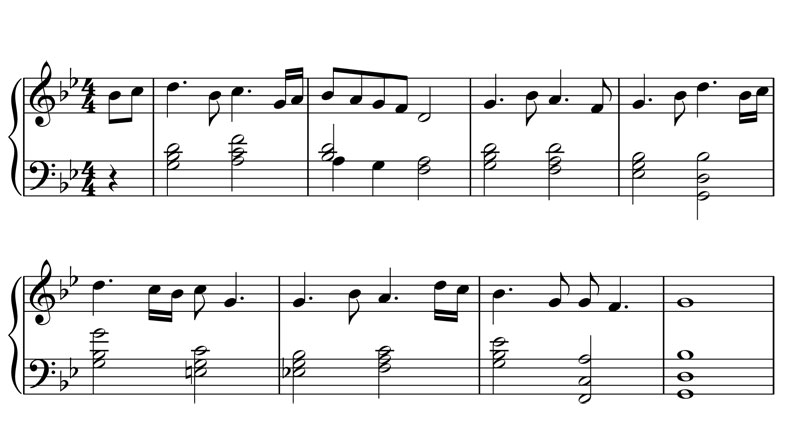This is the third in a series of six posts on the 2013 Oscar nominees for Best Original Score. After discussing each of the five nominees in separate posts, the sixth post will give my prediction for the Oscar winner and my reasoning behind it.
 John Williams received his forty-third Oscar nomination for Best Original Score with Lincoln. The film marks the twenty-sixth time Williams has scored a film directed by Steven Spielberg, a collaboration that has produced such admired scores as Jaws, Raiders of the Lost Ark, E.T., and Jurassic Park. While Williams is best known for these scores, Star Wars, and scores to other action and fantasy films, he is a remarkably flexible composer, having written for films in a range of genres that include historical (JFK), children’s (Home Alone), war (Saving Private Ryan), and romantic comedy (Sabrina).
John Williams received his forty-third Oscar nomination for Best Original Score with Lincoln. The film marks the twenty-sixth time Williams has scored a film directed by Steven Spielberg, a collaboration that has produced such admired scores as Jaws, Raiders of the Lost Ark, E.T., and Jurassic Park. While Williams is best known for these scores, Star Wars, and scores to other action and fantasy films, he is a remarkably flexible composer, having written for films in a range of genres that include historical (JFK), children’s (Home Alone), war (Saving Private Ryan), and romantic comedy (Sabrina).
Williams’ score for Lincoln is somewhat uncharacteristic in that it is rather subdued throughout the film. When present, it is usually quite soft and unobtrusive, a sensible strategy given that the majority of the film is devoted to elegant and highly polished lines of dialogue. This is not to say that Williams’ music does not add much to the film, but that it does so in a more subliminal way than in most of his other film scores.
The music of Lincoln is bound together by its strong Americana influence and contains several different types of cues, six of which I discuss below in a film music analysis.
The “Voice of the People” Theme (The American Process)

This theme, which has also been called “The American Process”, is first heard in the opening scene, in which a black Union soldier complains to Lincoln of the unequal status of black soldiers within the army. At the end of the scene, the soldier recites the famous portion of Lincoln’s Gettysburg Address which states that “government of the people, by the people, for the people shall not perish from the Earth.” This emphasis on the people is reflected musically through the use of a simple folk-like tune that is based largely on broken tonic chords. In this scene, the theme is scored in a thin two-part texture for solo piano, both of which give it an intimacy that suggests the isolation Lincoln feels in pursuing equality “for the people.” Because this music is associated with thoughts of bringing the people’s struggle for equality to Washington, I call this “the voice of the people” theme.
During the historic vote on the Thirteenth Amendment, we hear the “voice of the people” theme just after Democrat Edwin LeClerk changes his mind from yes to no before finally abstaining. At this point, the theme is still scored in only two parts, now in the more plaintive clarinet and bassoon. But once we see another tally mark drawn for the “yea” side of the vote, more winds are added, then the harmony begins to thicken and strings are added as well. The theme therefore builds in optimism in the same way that votes for the Amendment begin to accumulate and build towards its victory, marking a significant step forward in the struggle for equality.
The “Integrity” Theme (Freedom’s Call)
This theme, which has also been named “Freedom’s Call”, might well be called the main theme of the film as it is the most prominent of Williams’ original themes:
Hear the theme below from 0:55:
This theme is heard at several points in the film, particularly at times when a character defies others in the pursuit of Constitutional equality. For this reason, I call it the “integrity” theme. Williams expresses this idea musically in a number of ways. In terms of harmony, he employs only the three major chords in a major key: I, IV, and V. This lends the theme a pure and emotionally positive quality. Similarly, the melody always sounds notes in each chord and therefore lacks the “impurity” of dissonance. The interval between the melody and bass is almost always a third—indeed that is the very first interval we hear. This gives the theme a warm and uplifting feeling, especially since the thirds are always part of a major chord. Rhythmically, the theme’s chords are sounded in a slow, stately manner that conveys a proud and confident tone. On top of all this, the bass consistently sounds a short-long (“Lombard”) rhythm that suggests folk music, and therefore a connection to the people.
Several scenes point up the association of the theme with the pursuit of equality through political defiance. When Lincoln makes the emendation in his telegram to Grant, he says that the Confederate commissioners who are coming to make a peace offering should not proceed to Washington. Should they do so, the Thirteenth Amendment would have no hope of being passed since the war would be brought to an end without the unpopular idea of abolishing slavery. By delaying the commissioners, Lincoln renders the Amendment the fastest way of ending the war, though he does so by flouting the political courtesy of meeting with the commissioners.
Also consider the scene in which Thaddeus Stevens (Tommy Lee Jones), leader of the Radical Republicans, is asked in the House of Representatives whether he believes that the Constitution’s precept that all men are created equal is meant literally. Stevens has been an ardent supporter of racial equality for years, and the Democrats believe they can entice Stevens to admit to this supposed ulterior motive of the Amendment, and thus provide a basis for striking it down. Stevens, however, defies their provocations by tempering his response, saying only that “I don’t hold with equality in all things only with equality before the law and nothing more.” Appropriately, it is just before Stevens utters these words that we hear the “integrity” theme with some slight dissonance to suggest our uncertainty in his response. Once Stevens explains that even someone as “unworthy” as Wood (his questioner) is entitled to equality before the law, the theme becomes consonant, though still subdued in the winds. Finally, when Stevens’ response is met with cheers and applause, the theme breaks out into a lush and full scoring for the strings to match his remarkable display of integrity.
The “Cost of War” Theme (The Remembrance Theme)
This theme, which has also been called “The Remembrance Theme”, is associated with the Lincoln’s sadness over the cost in human life the war has had on both himself and the American people. It occurs in a couple of poignant scenes: when Lincoln and his wife Mary discuss the death of their son Willie, and when Lincoln surveys the body-strewn battlefield outside Petersburg near the end of the film. Young Willie had died a few years back, on an day when Lincoln and Mary were consumed with a social function they had hosted because the war was going rather badly and they needed to “put on a face” to reassure those around them. Later in the film, outside Petersburg, Lincoln and a procession ride on horseback through the field to a wordless scene that emphasizes the sadness of the massive number of deaths. (Appropriately, the scene is shot in a lifeless blue tint.)
The music Williams sets to these scenes is appropriately melancholic, a mood that he creates through the slow tempo, minor tonality, and slow dotted rhythms, which evoke the feeling of a funeral march. As with the “voice of the people” theme in the opening scene, the scoring here is for solo piano, reflecting the intimacy of the emotional expression. And yet, there is more to this deceptively simple theme. The accompaniment is in regularly-spaced block chords, a characteristic setting of hymns that gives the theme a seriousness and solemnity. The music also avoids the usual raised seventh degree of a minor scale in favour of the “natural minor”, with the seventh left unraised, which is typical of folk music. And notice the short-long rhythm in the second half of bars 5 and 7, which are elongated versions of this same folk-like Lombard rhythm found in the “integrity” theme. Both of these folk features suggest not only that the suffering is that of the American people, but also that Lincoln himself is no different from the people in this respect since he too has lost a son due to the war.
See and hear this theme below:
Ominous Orchestral Music
A few scenes in Lincoln are scored with ominous orchestral music that is in a more modern style. This type of music occurs in scenes where an action is threatening the allure of the Thirteenth Amendment as a means of ending the Civil War. Musically this is represented by a traditional device for creating an ominous quality—a low sustained note (or “pedal”) in the strings, over which slow-moving melodies in minor keys are sounded. A good example occurs when William Seward, Lincoln’s Secretary of State, learns that Lincoln has dispatched men to summon Confederate commissioners in order to discuss terms of peace. As mentioned above, ending the war in this way would have drawn support away from the Amendment and quickly defeated it. Similarly, when news of the bombardment of Wilmington reaches Lincoln, we again hear this style of music since it could cause a Confederate surrender and undermine the Amendment. In this sense, these actions, rather than the Confederates per se, are the real antagonists of Lincoln and are therefore scored with a strongly threatening tone.
Hear an example below:
Music in a Purely Folk Style
At several points in Lincoln, we hear music in an American folk style, complete with rapid fiddle and banjo tunes, and even the addition of the spoons. These cues always accompany William Bilbo (James Spader), a friend of the Republicans who has connections to a number of Democrats in the House of Representatives. The Republicans hire Bilbo to try to persuade his Democrat connections to vote in favour of the Amendment. Although Bilbo is eventually somewhat successful, he generally fails in his first attempts. Spielberg takes these opportunities to make Bilbo the comic relief of the story (which is no doubt why Spader was cast in the role). Williams’ use of music in a purely folk style points up the humour of these scenes in a way that is in keeping with the folk elements in the rest of the score.
Hear an example below:
Diegetic Folk Music
There are a few scenes in Lincoln in which we hear diegetic music (music that has its source in the fictional world of the narrative). These include the opening scene, where a fife and drum corps plays offscreen, Lincoln’s flag-raising speech, where the crowd sings the Stephen Foster tune, “We are Coming, Father Abra’am”, and after the Amendment wins the vote, when those in favour sing “Battle Cry of Freedom”. Naturally, the authenticity of these pieces helps to immerse us into the setting of the film. At the same time, because Williams’ non-diegetic music includes elements of Civil-War-era music, especially folk music, the cues in the score blend together and form a coherent whole.
Hear the fife and drums piece and “Battle Cry of Freedom” here:
Coming soon… Thomas Newman’s score for Skyfall.

